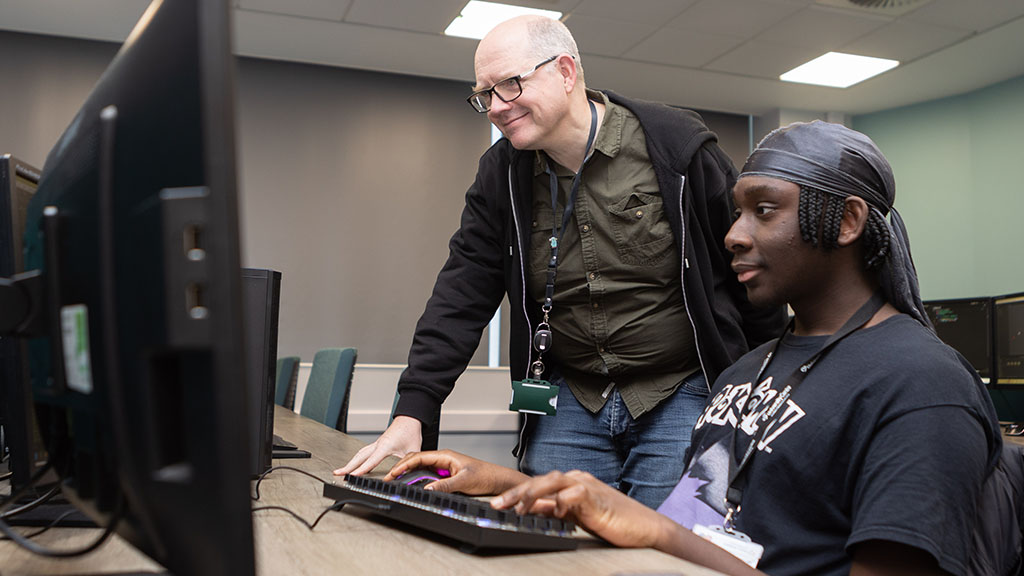Course Overview
This course can either be studied at Wakefield College or Selby College.
The Software Development industry has a market size of £39.7bn in 2022 and is expected to further increase by 6.4% during the year. This Digital T Level is aimed at students who want to be able to choose between moving into a skilled profession based around the Software Development industry or further study, for example a degree level apprenticeship or higher-level technical study, including university. The course is supported by an extensive work placement where you can gain a detailed insight into software development.
Moreover, you will extend your skillset by developing confidence in both written and verbal communication. You will work outside your comfort zone and be given leadership roles to enable you to develop more resilience, which supports your problem-solving skills and makes you more employable.
The T Level qualification, equivalent to 3 A Levels, has been developed by over 80 leading digital sector companies, employers, and expert practitioners to ensure it reflects professional industry practice. The purpose of the Level 3 Technical qualification is to ensure that students have the knowledge and skills to progress into skilled employment within the sector or to higher-level training.
The Digital T Level encompasses:
- The Technical Knowledge and Practical skills required for professional and technical roles in the industry.
- Maths, English and Digital skills required for the professional and technical roles.
- An industry placement of at least 45 days.
80% of your time will be spent in the classroom and 20% on a 45-day placement with an employer to give you the skills and knowledge companies look for.
What You Will Study
You will study core content which covers the knowledge, understanding and application of contexts, concepts, theories and principles relating to the following areas:
- Problem solving
- Programming
- Emerging issues and impact of digital
- Legislation and regulatory requirements
- Business context
- Data
- Digital environments
- Security
Further to this you will study occupational specialist content that is designed to cover knowledge and skills needed to work in the digital sector.
This is broad ranging, for example below are a few of the key concepts you will need to master when developing software:
- Understanding the software development life cycle model
- Agile methods
- Functional requirements
- Project management
- Managing risk
- How You Will Be Assessed
You will be assessed via a variety of methods such as external exams, controlled assessments, an employer-led set project, and practical assignments.
This will generate an overall grade of pass, merit, distinction, or distinction*. You will be awarded a nationally recognised certificate which will show a breakdown of what you have achieved.
- Entry Requirements
5 GCSEs at Grade 9-5, including English and Maths.
- Further Study
You will gain a T Level in Digital Production, Design and Development and be able to progress straight into employment or continue to a higher level apprenticeship or degree.




